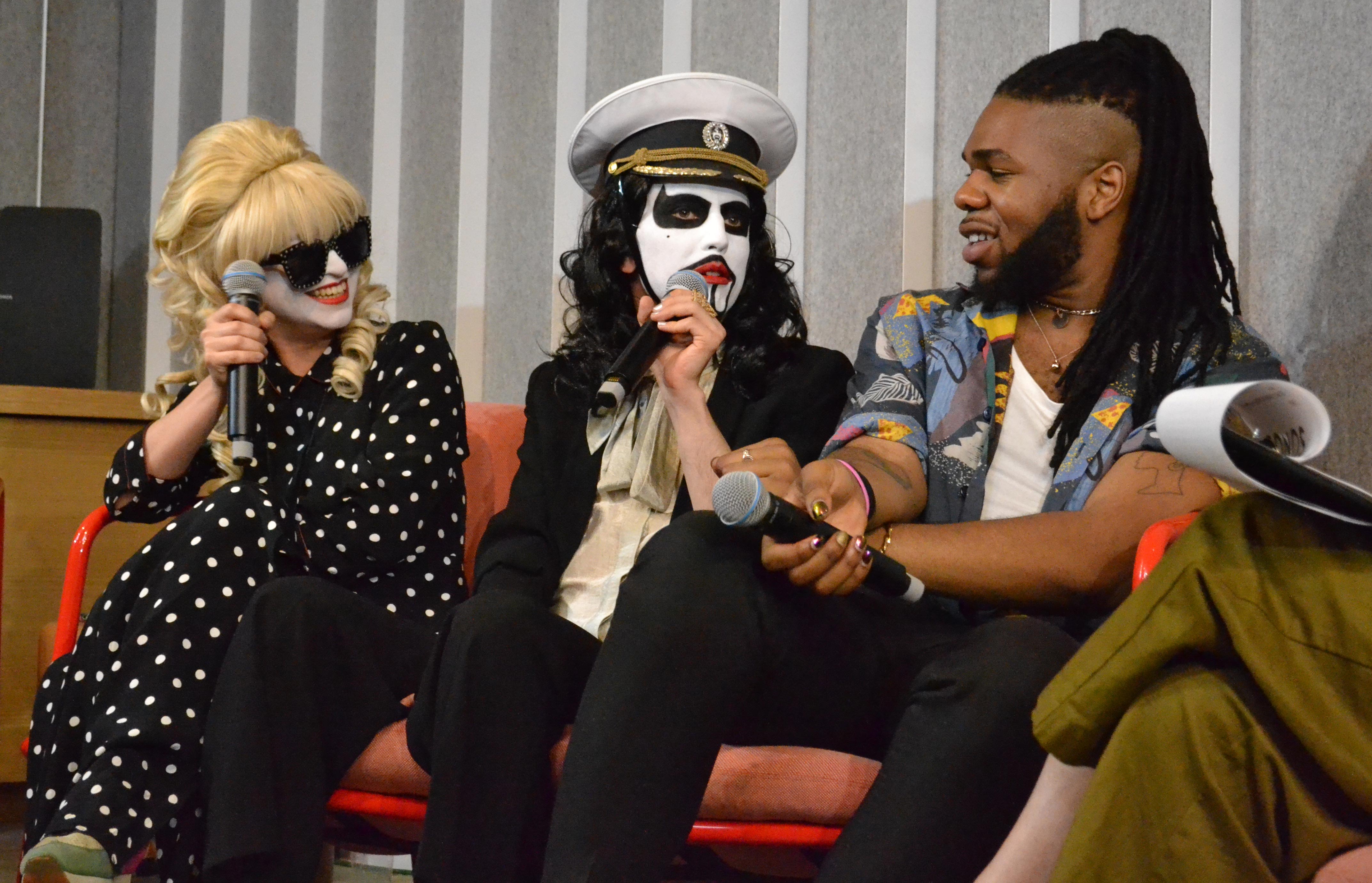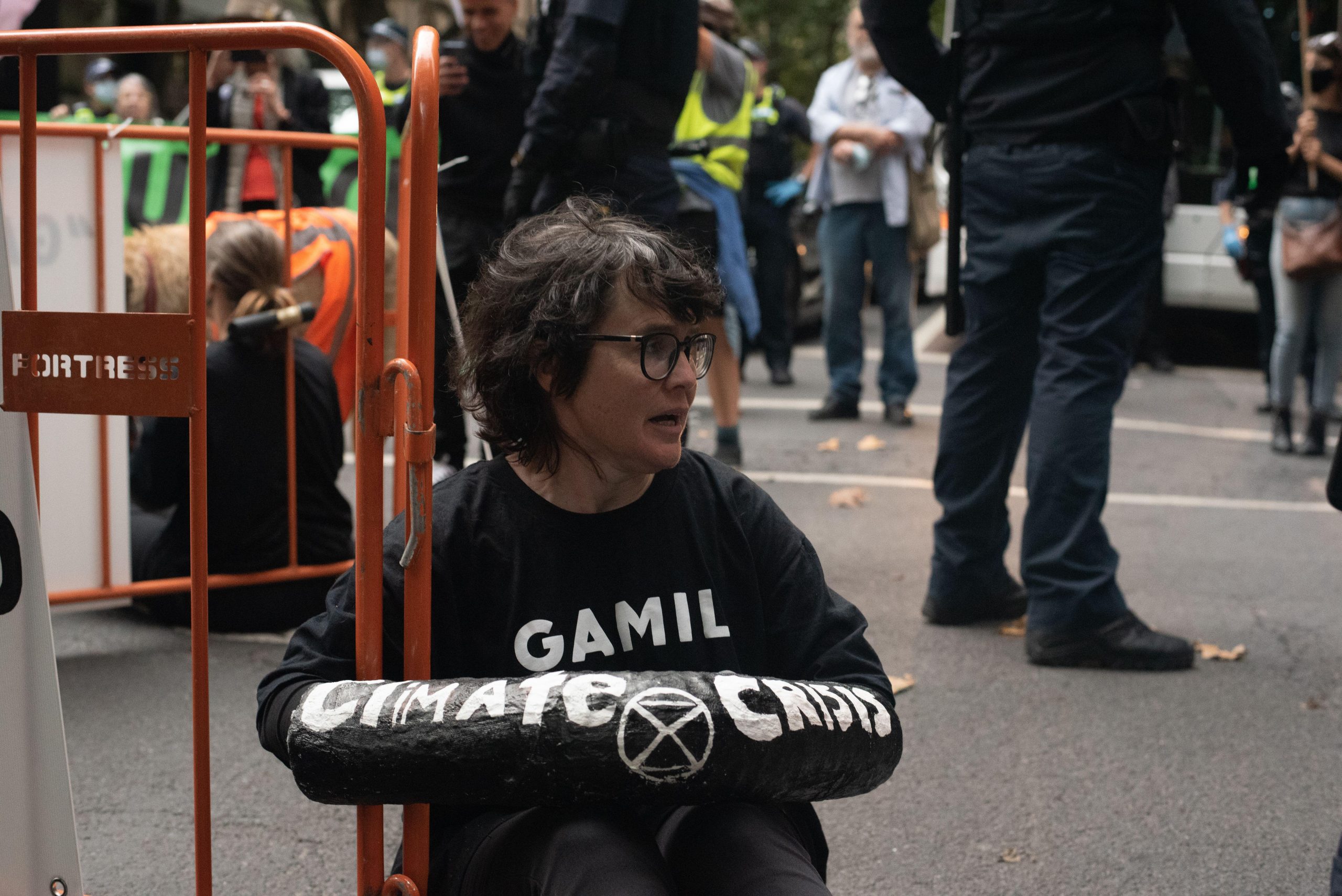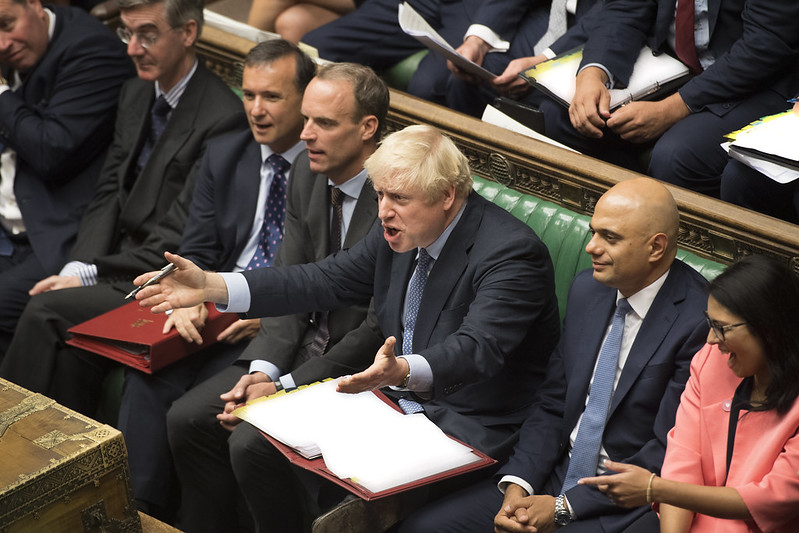[vc_row][vc_column][vc_raw_html]JTNDaWZyYW1lJTIwc3JjJTNEJTIyaHR0cHMlM0ElMkYlMkZ3d3cuZmFjZWJvb2suY29tJTJGcGx1Z2lucyUyRnZpZGVvLnBocCUzRmhyZWYlM0RodHRwcyUyNTNBJTI1MkYlMjUyRnd3dy5mYWNlYm9vay5jb20lMjUyRmdheXRpbWVzJTI1MkZ2aWRlb3MlMjUyRjEwMTU2MjA2MDM5MDM2MjczJTI1MkYlMjZzaG93X3RleHQlM0QwJTI2d2lkdGglM0Q3MDAlMjIlMjB3aWR0aCUzRCUyMjcwMCUyMiUyMGhlaWdodCUzRCUyMjQwMCUyMiUyMHN0eWxlJTNEJTIyYm9yZGVyJTNBbm9uZSUzQm92ZXJmbG93JTNBaGlkZGVuJTIyJTIwc2Nyb2xsaW5nJTNEJTIybm8lMjIlMjBmcmFtZWJvcmRlciUzRCUyMjAlMjIlMjBhbGxvd1RyYW5zcGFyZW5jeSUzRCUyMnRydWUlMjIlMjBhbGxvd0Z1bGxTY3JlZW4lM0QlMjJ0cnVlJTIyJTNFJTNDJTJGaWZyYW1lJTNF[/vc_raw_html][vc_column_text]“When I started recording my music I made the decision that I would be out. But at the same time I was so conscious of using pronouns and not coming across as too gay or not coming across too assuming,” said MNEK, English singer, songwriter and record producer, speaking at the Sonos Store in London.
Expression Uncensored, which was hosted by Sonos, Index on Censorship and Gay Times Magazine, featured a panel — Julia Farrington, associate art producer at Index, MNEK, Sado Opera, a queer band, and Princess Julia, a DJ and music writer — that discussed queer music and censorship around the world.
Farrington defined the two main types of censorship that she believes exist — classic state-sponsored censorship imposed through laws and government, and self-censorship.
MNEK’s self-censoring in the beginning of his career was the result of societal pressures. While he said that his coming out was in general a positive experience, he also talked about growing up in a British-Nigerian household where the only thing you hear about homosexuality is that it is wrong. After coming out to his parents, MNEK said that while they support his career and the music he produces, they are sometimes still shocked because “it’s not something they’re used to but it’s all about them learning. There’s nothing wrong with learning something new.”
Living in London, Princess Julia said she had never faced state-sponsored censorship. Instead she faced self-censorship as a result of cultural pressures to look and be a certain way. As part of the Blitz Kids of the 1970s, she helped usher in an era of queer people being able to express themselves the way they wanted to.
She believes that “there’s always been avant garde scenes, underground scenes going on. In times of repression or rebellion even, these scenes tend to emerge. Obviously in Russia, that why there are pockets of creative people striving forth and trying to have an identity.”
Hailing from Russia, Sado Opera faced more state-sponsored censorship, which, in general, leads to self-censorship for fear of being targeted.
Sado Opera was originally created to fight the censorship and homophobia in Russia. The group talked about Russia’s homosexual propaganda law, which forbids talking about homosexuality in public. The name of the law was changed to Promoting Untraditional Family Values to hide the homophobia of the government. The government gives laws unassuming names to make it harder for people to discern the malicious intent behind the legislation, Sado Opera explained.
“Other artists might want to express support, but they can’t. The atmosphere makes you double-think what you say” said Sado Opera.
Although MNEK hasn’t experienced the level of state-sponsored censorship that Sado Opera has, he talks about how he hasn’t been to Nigeria in a long time because of unconscious “fears and my own insecurities with going back there and knowing the legislative issues that are there.”
Sado Opera was only able to be more open about their message when they moved to Berlin, where they have sponsorship from a club and have partnered with several organisations that support LGBTQ+ people facing persecution and women who have survived rape.
MNEK said “it’s a bonus when you realise your music is helping someone live their life” and each artist revealed similar sentiments. [/vc_column_text][vc_row_inner][vc_column_inner width=”1/4″][vc_column_text]
Artistic Freedom
[/vc_column_text][/vc_column_inner][vc_column_inner width=”3/4″][vc_column_text]
Index encourages an environment in which artists and arts organisations can challenge the status quo, speak out on sensitive issues and tackle taboos.
Index currently runs workshops in the UK, publishes case studies about artistic censorship, and has produced guidance for artists on laws related to artistic freedom in England and Wales.
Learn more about our work defending artistic freedom.[/vc_column_text][/vc_column_inner][/vc_row_inner][vc_single_image image=”101971″ img_size=”full” add_caption=”yes”][vc_single_image image=”101969″ img_size=”full” add_caption=”yes”][/vc_column][/vc_row]





